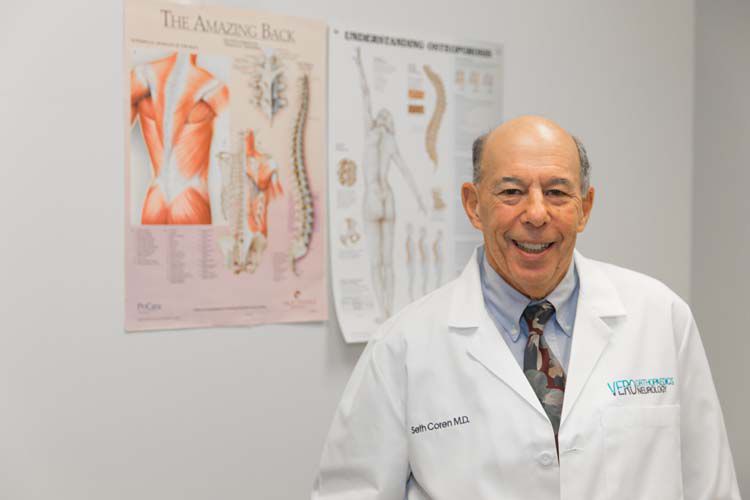
Fractured bones due to falls and other incidents are common in the older population: About a third of people over the age of 50 will suffer a fracture at some future point, and gerontologists, writing in the medical journal JAMA Internal Medicine, have sounded an alarm about the link between certain prescription medicines and the risk of re-injury during the healing process.
Drugs considered to be psychotropic – affecting a person’s mental state – are known to increase the risk of a fall, basically because they can make you lose your balance or become dizzy. Psychotropic drugs include sleep aids, sedatives and antidepressants. It seems intuitive that physicians would consider discontinuing those medications (or at least reducing the dose) after a fracture has been suffered. Unfortunately, research has shown that is not the case.
Seth Coren, M.D., is a Vero Beach orthopedist with a sub-specialty in osteoporosis. He agrees that reviewing a person’s medications after a fall is important, but ideally steps should be taken to prevent a fall in the first place. He says, “If a person is at risk of falling due to the medications they are taking, or due to osteoporosis or another medical condition, their situation should be fully evaluated, and they should be encouraged to join a balance program.” Dr. Coren says such a program teaches techniques that can prevent falls and the associated risk of fracture.
The gerontologists who conducted the study are from Beth Israel Deaconess Medical Center and Hebrew Senior Life Institute for Aging Research. In their commentary, they cited a previous study involving Medicare beneficiaries who had broken a hip, forearm or wrist; that study found that, within the four-month period after their injury, 85 percent were taking one or more of the drugs known to increase fracture risk. Co-authors Sarah Berry and Douglas Kiel write, “Given the robust evidence linking psychotropic medications with falls and fractures, the lack of decline in the use of these medications after a fracture is alarming.”
Additionally, the National Osteoporosis Foundation recommends osteoporosis medication for all adults over 50 who have fractured a hip, as it known to reduce the risk of another fracture. Yet the research cited by Berry and Kiel found that less than a quarter of patients received such medication. This is significant, as more than 20 percent of older people who break a hip die within a year, a death rate approximately three times higher than for uninjured people of the same age and gender.
In keeping with the study findings, Vero’s Dr. Coren believes that many primary care physicians do not prescribe osteoporosis medication according to the National Osteoporosis Foundation guidelines. He says, “Doctors are often not aggressive enough in their treatment. Another problem is that patients may be prescribed osteoporosis medication but stop taking it after a period of time, without consulting their doctor.” This non-adherence can cause osteoporosis to worsen, increasing the risk of fracture – especially of the hip and spine, but also of the wrists and shoulders.
Berry and Kiel say that most clinicians don’t dispute the importance of medication review for patients following a fracture but, because of multiple care teams working across various medical settings, it’s often unclear who should conduct such a review. Primary care physicians have the long-term relationship necessary to help their patients make risk/benefit decisions about the use of psychotropic medication, but are generally not involved in the care of fractures.
“The findings suggest that far too often clinicians fail to perform a thoughtful medication review for patients with a fracture,” wrote Dr. Berry. “It’s imperative that researchers and clinicians work together to narrow this treatment gap and reduce secondary fractures and their devastating consequences.”
The researchers would be pleased to learn that Dr. Coren practices what they preach; in what he calls a “fracture liaison service,” patients who have sustained fractures are referred to him for evaluation and appropriate treatment. The evaluation includes a bone density study and testing of the patient’s vitamin D levels, as low levels are associated with hip fractures. Dr. Coren says that after a fracture, it’s important that the patient is seen by an osteoporosis specialist, someone who will be their champion in the fight against future fractures.
Dr. Coren’s practice is part of Vero Orthopaedics and Neurology, located at 1155 35th Lane, Suite 100 in Vero Beach. The phone number is 772-569-7039.



